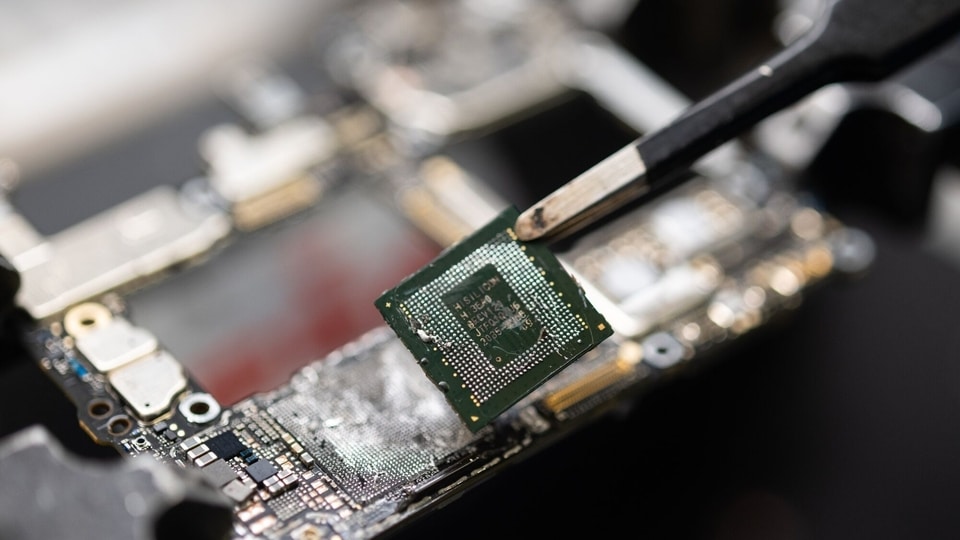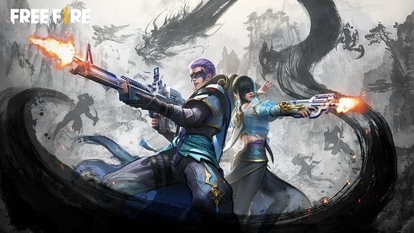Chips, Silk and Paper: You Can't Keep Secrets Forever
China’s Huawei breakthrough is just part of a long history of the spread — or theft — of what we now call intellectual property.

China appears to have built a chip that matches some of the West's most advanced semiconductors. While it may alarm US defense experts and sanctions proponents, the development shouldn't have been too surprising. Industrial secrets are impossible to keep for long, as the Chinese themselves know from millennia of what we'd now call intellectual property lost by way of trade, theft and war.
The progress toward parity with the West was revealed in a teardown conducted for Bloomberg News of the latest smartphone from Huawei Technologies Co., which utilizes a chip made by Shanghai-based Semiconductor Manufacturing International Corp. The Kirin 9000s chip is still two generations behind the most advanced Western products. At 7 nanometers, it will soon be outdistanced by the even thinner 3-nanometer chip that Apple Inc. will use in its next iPhone. Still, it reflects a porousness that lets know-how slip through stringent US sanctions.
History has lots of examples of technology spreading in spite of government attempts at monopoly — mostly to the detriment of China. The Chinese had developed sericulture thousands of years ago, managing to keep the techniques for turning caterpillars into clothing a secret for hundreds of years. But the rulers of China needed Central Asian horses to wage war and control their territory (As Jessica Rawson explains in her magisterial Life and Afterlife in Ancient China, the soil in the Yellow River valley doesn't have enough of the selenium required for the strong bones and muscles of military breeds). And so they traded silk for the right animals and quickly generated demand for the fabric outside the country. Because silk was key to China's martial-equine needs, its secrets were strictly controlled. Breaking the sanctions could lead to death.
Still, the rewards of commerce moved the material westward by land and sea via the so-called “silk routes,” causing one of the world's first trade imbalances. One estimate had the Roman Empire spending the equivalent of 1% of its gross domestic product on the cloth. Legend has it that the Chinese monopoly was broken by the Byzantine Emperor Justinian I in the 6th century when he had two Nestorian monks smuggle back silkworm eggs in bamboo cases plus seedlings of the mulberry tree they fed on. But I suspect traders had already brought knowledge of silkworm cultivation to the West much earlier, just because such things do slip through. Hence, the explosion of silk manufacturing when Justinian made it part of his industrial policy. The Byzantines just got better at it.
China's monopoly on paper manufacturing was broken much faster (well, six centuries) but more dramatically, after the emperor's army lost a battle in Central Asia to the Arabs of the expanding Abbasid caliphate. Among the prisoners of war were military paper-makers who brought their secrets to the Middle East, from where it spread further west. (The origins of gunpowder for military use and guns is a little more nebulous, but the technology may have coursed westward along the same Central Asian routes.)
Porcelain — which sparked a health and sanitation revolution because of the ease with which it could be cleaned — was also much desired outside the Chinese world. So much so that China is still a synonym for the wares. From the 12th century on, Chinese emperors used the ceramics in much the same way they used silk, to gain influence over neighboring countries they wished to cultivate for reasons of prestige or policy. At the same time, traders would sell plates and jars designed for specific markets in the Islamic world and in Europe. It was not until the 18th century that factories in Meissen in Germany and Limoges in France discovered the kind of clay required and figured out the firing techniques to create true porcelain.
The story of tea is more familiar but still fraught with residual geopolitical indignation to this day. As with the Romans, the British faced a huge deficit because China dominated one product, in this case, tea. Furthermore, the emperors in Beijing didn't feel the need to liberalize their trade policies to alleviate foreign anxieties. And so the English decided to correct the imbalance and the impasse by smuggling opium — a banned substance — into China. That immediately changed the trade equation. Chinese objections led to the British waging two Opium Wars, beginning in 1838, to open the country in the name of free trade. By the end of the century, the cascading effects of humiliation and stagnation led to the fall of the Qing dynasty.
So China comes to the semiconductor contest with a lot of… uhm, chips on its shoulder. Nothing is helped by the military faceoff with the US. Chinese patriots like to point out that the country had to “discover” its own way to atomic war technology to overcome the joint monopoly over the bomb by Washington and Moscow. Now the Biden administration's semiconductor stranglehold is seen as just the latest attempts by the West to suppress China's destined path back to No. 1. Beijing's belligerence is deepened by its own millennia-long and misguided attempts to achieve autarky — as if the “Middle Kingdom” could thrive without the rest of the world.
It's possible that the Chinese aren't yet able to make advanced chips in quantity. Or make the state-of-the-art semiconductors the West is already deploying in consumer products. Again, it won't be surprising if they just get better at it. The US can always tighten its sanctions regimes and strengthen the safeguards to slow the proliferation. But commerce will almost always force out technological secrets.
The bigger picture is more ominous. If China and the US continue to use trade and technology in a zero-sum game of world domination, we are all likely to end up on the zero end of the equation.
Howard Chua-Eoan is a columnist for Bloomberg Opinion covering culture and business. He previously served as Bloomberg Opinion's international editor and is a former news director at Time magazine.
Catch all the Latest Tech News, Mobile News, Laptop News, Gaming news, Wearables News , How To News, also keep up with us on Whatsapp channel,Twitter, Facebook, Google News, and Instagram. For our latest videos, subscribe to our YouTube channel.


























